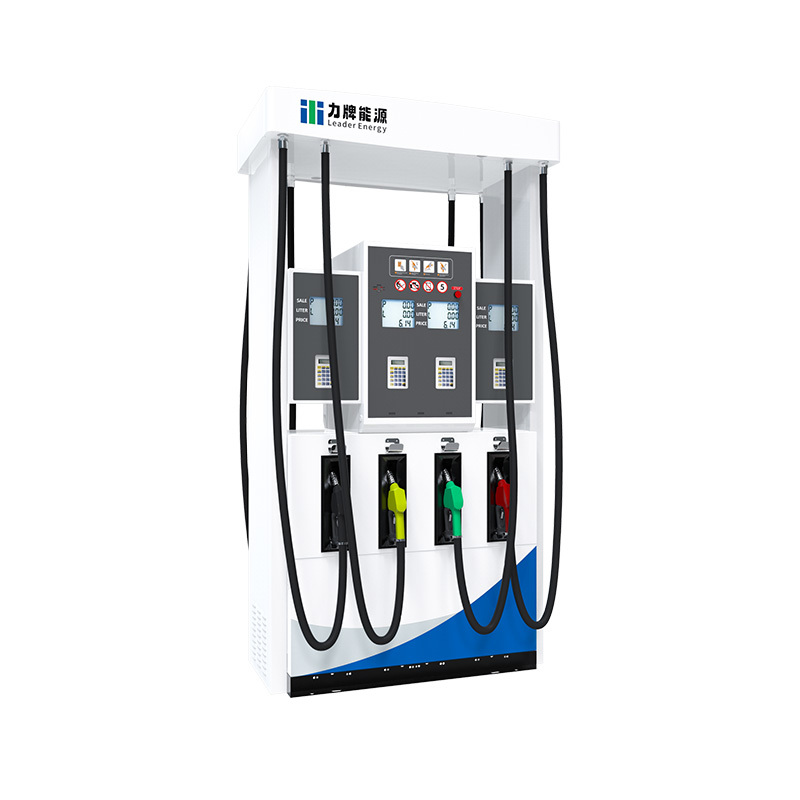Understanding Multi-Hose Fuel Dispensers: Essential Insights for the Transportation Industry
Multi-hose fuel dispensers are specialized fueling solutions designed to accommodate multiple fuel types and dispensing nozzles from a single unit. This technology caters to a wide array of vehicles and fuel preferences, making it an essential asset for modern gas stations. By allowing simultaneous dispensing of different fuels, these dispensers optimize fuel delivery and reduce wait times for cus
Multi-hose fuel dispensers are specialized fueling solutions designed to accommodate multiple fuel types and dispensing nozzles from a single unit. This technology caters to a wide array of vehicles and fuel preferences, making it an essential asset for modern gas stations. By allowing simultaneous dispensing of different fuels, these dispensers optimize fuel delivery and reduce wait times for customers. This is particularly beneficial during peak hours, as it enhances service speed and improves overall customer satisfaction.
One of the key advantages of multi-hose fuel dispensers is their ability to manage various fuel grades, including gasoline, diesel, and alternative fuels, all from one location. This flexibility not only increases the range of services offered by a gas station but also helps in streamlining operations. For fleet operators and transportation companies, this means a single stop for refueling, which can significantly reduce downtime and improve operational efficiency.
Moreover, multi-hose fuel dispensers are designed with advanced technology to support accurate fuel delivery and monitoring. These systems often come equipped with digital displays, allowing customers to easily select their preferred fuel type and monitor the quantity dispensed. Additionally, integrated payment solutions enhance the customer experience by providing a seamless transaction process.
The environmental aspect is another consideration in the use of multi-hose fuel dispensers. As the industry shifts towards more sustainable practices, these dispensers can also accommodate biofuels and other alternative energy sources, aligning with the push for greener solutions in transportation. This adaptability not only meets regulatory requirements but also demonstrates a commitment to sustainability, which is increasingly important to consumers.
Furthermore, maintenance of multi-hose fuel dispensers is critical to ensuring their reliability and performance. Regular checks and servicing are essential to prevent leaks, ensure compliance with safety standards, and maintain fuel quality. Operators should be aware of the importance of adhering to manufacturer guidelines and local regulations to ensure their equipment remains in optimal working condition.
In summary, multi-hose fuel dispensers are a vital component of modern gas stations in the transportation sector. Their ability to efficiently manage multiple fuel types, enhance customer service, and support sustainability initiatives makes them an invaluable asset for operators. As the industry continues to evolve, investing in such technology will likely yield significant operational benefits and improve overall customer satisfaction, positioning gas stations favorably in a competitive market.
One of the key advantages of multi-hose fuel dispensers is their ability to manage various fuel grades, including gasoline, diesel, and alternative fuels, all from one location. This flexibility not only increases the range of services offered by a gas station but also helps in streamlining operations. For fleet operators and transportation companies, this means a single stop for refueling, which can significantly reduce downtime and improve operational efficiency.
Moreover, multi-hose fuel dispensers are designed with advanced technology to support accurate fuel delivery and monitoring. These systems often come equipped with digital displays, allowing customers to easily select their preferred fuel type and monitor the quantity dispensed. Additionally, integrated payment solutions enhance the customer experience by providing a seamless transaction process.
The environmental aspect is another consideration in the use of multi-hose fuel dispensers. As the industry shifts towards more sustainable practices, these dispensers can also accommodate biofuels and other alternative energy sources, aligning with the push for greener solutions in transportation. This adaptability not only meets regulatory requirements but also demonstrates a commitment to sustainability, which is increasingly important to consumers.
Furthermore, maintenance of multi-hose fuel dispensers is critical to ensuring their reliability and performance. Regular checks and servicing are essential to prevent leaks, ensure compliance with safety standards, and maintain fuel quality. Operators should be aware of the importance of adhering to manufacturer guidelines and local regulations to ensure their equipment remains in optimal working condition.
In summary, multi-hose fuel dispensers are a vital component of modern gas stations in the transportation sector. Their ability to efficiently manage multiple fuel types, enhance customer service, and support sustainability initiatives makes them an invaluable asset for operators. As the industry continues to evolve, investing in such technology will likely yield significant operational benefits and improve overall customer satisfaction, positioning gas stations favorably in a competitive market.








